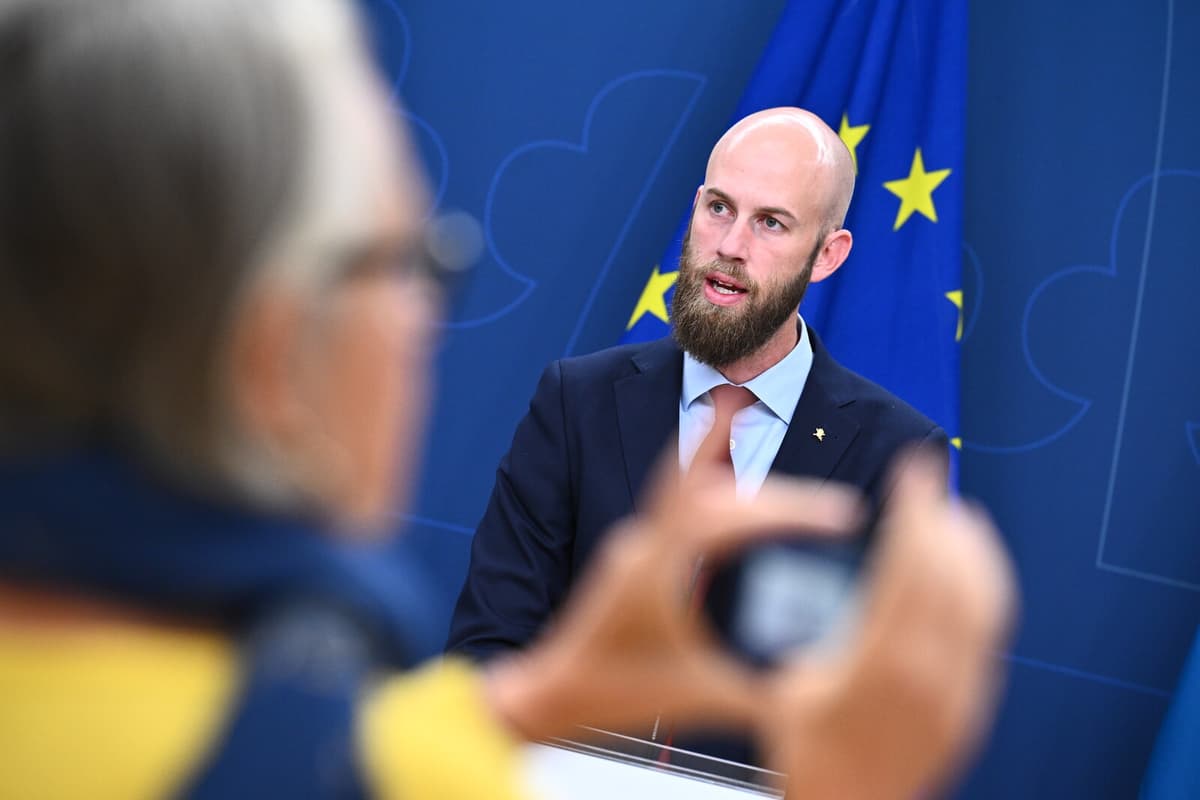We are presenting the largest investments in civil defense since the end of the Cold War, says the Minister for Civil Defense, Carl-Oskar Bohlin (The Moderate Party).
This year, the state is allocating approximately 6.5 billion kronor to the work of building up Sweden's civil defense. This is in addition to all the functions that already exist in society and which will become part of the civil defense in the event of war.
The government is now proposing an increase in the allocation. Next year, it is proposed to increase to 8.5 billion kronor, and then grow to 15 billion kronor from 2028.
This is in line with what all the parliamentary parties agreed on in the Defense Committee.
Not enough
However, the 15 billion kronor will not be enough for Sweden to be able to handle the consequences of an armed attack over a longer period. For that, the allocation needs to be increased to 20 billion kronor, according to the Swedish Agency for Emergency Management (MSB).
This is about handling the initial consequences of an armed attack, giving society the opportunity to adjust, says Carl-Oskar Bohlin.
If Sweden were to face a war threat, it would create entirely new planning conditions, according to the Minister.
This is about the preparations we make in advance, says Bohlin.
Upgrade shelters
The largest part of the new billions will go to six prioritized areas: Healthcare, transportation, food supply, energy supply, protection of the civilian population, and telecommunications and postal services.
This includes, for example, increasing stocks of vital medicines, establishing preparedness warehouses, improving repair preparedness, ensuring that there are mobile masts that function during disrupted conditions, and upgrading shelters.
This is a prioritization of the hard core of what is important for building a strong and robust society that can be put on a war footing if the worst were to happen, says Bohlin.
Distribution 2028 in billions of kronor, distribution 2025 in parentheses
Healthcare: 2.5 billion kronor (2.1)
Telecommunications: 1.8 billion kronor (0.5)
Food/drinking water: 1.6 billion kronor (0.8)
Transportation: 1.5 billion kronor (1.1)
Population protection: 1.4 billion kronor (0.6)
Energy supply: 1.4 billion kronor (0.6)
Other: 4.8 billion kronor (2.8)
Total: 15 billion kronor (8.5)
Note: Other includes, for example, order and security, voluntary defense organizations, financial services, and protection of cultural heritage






